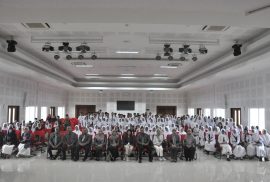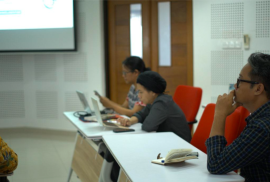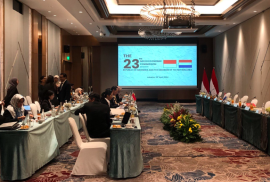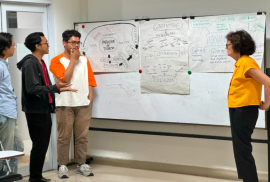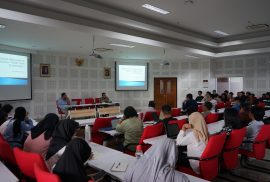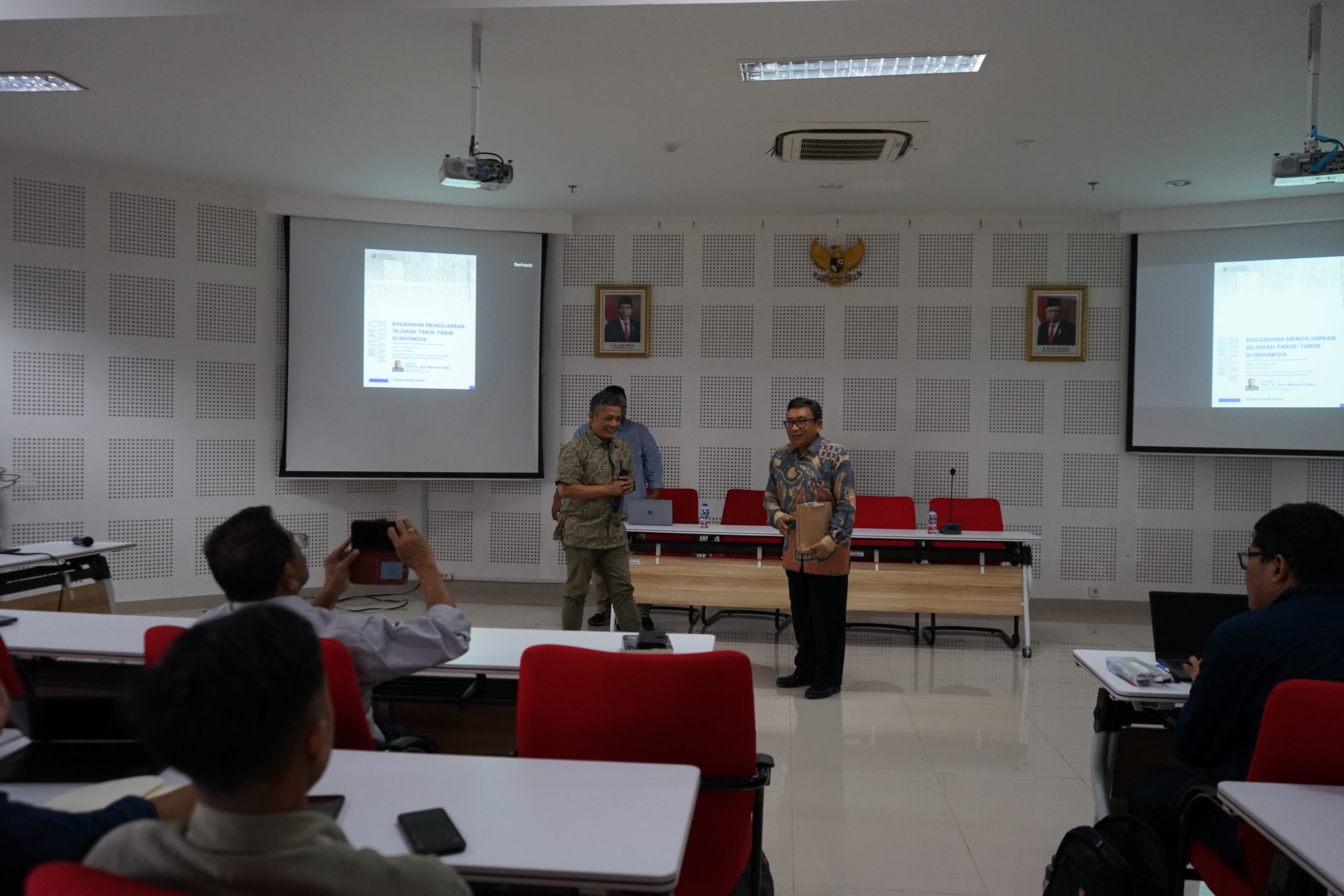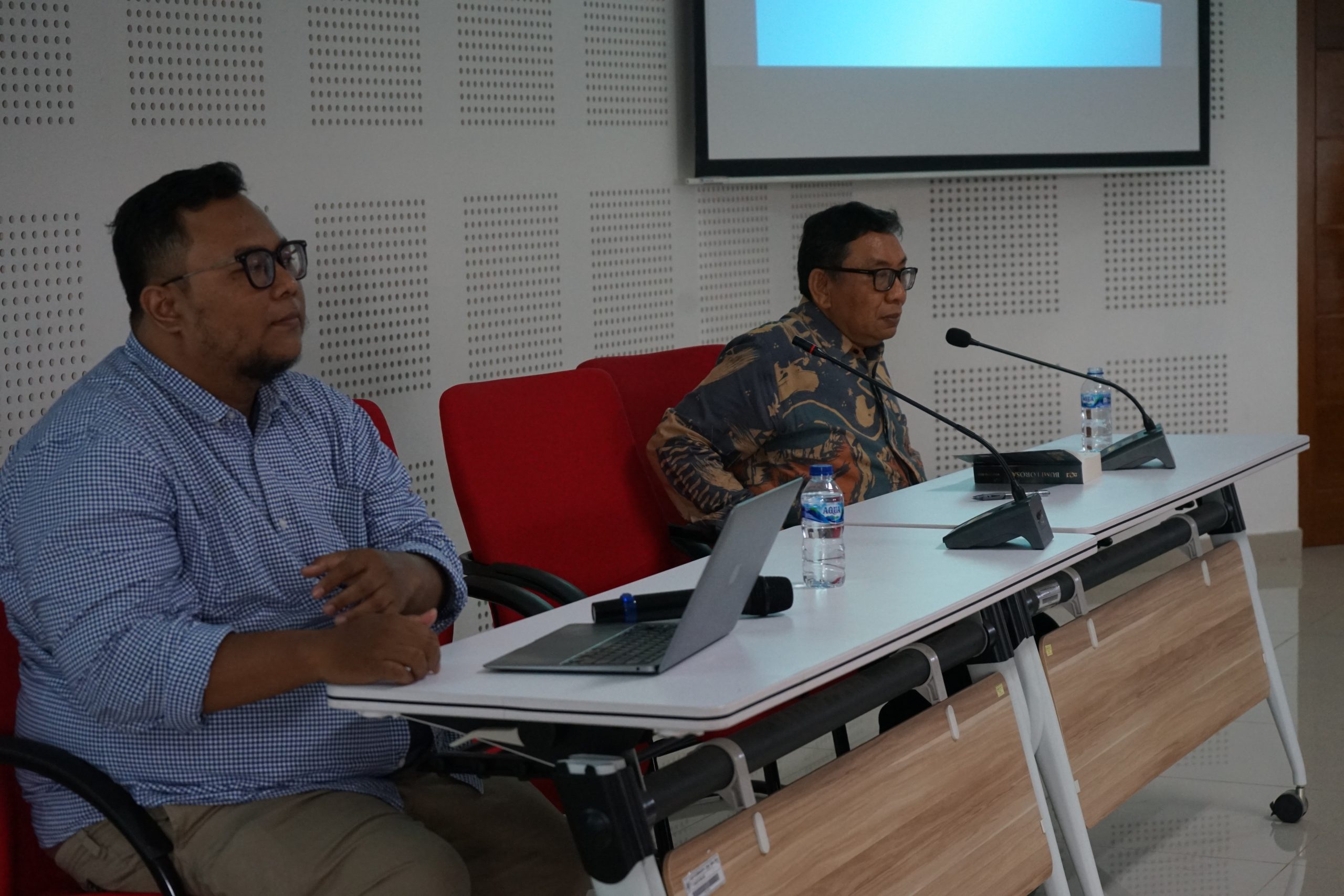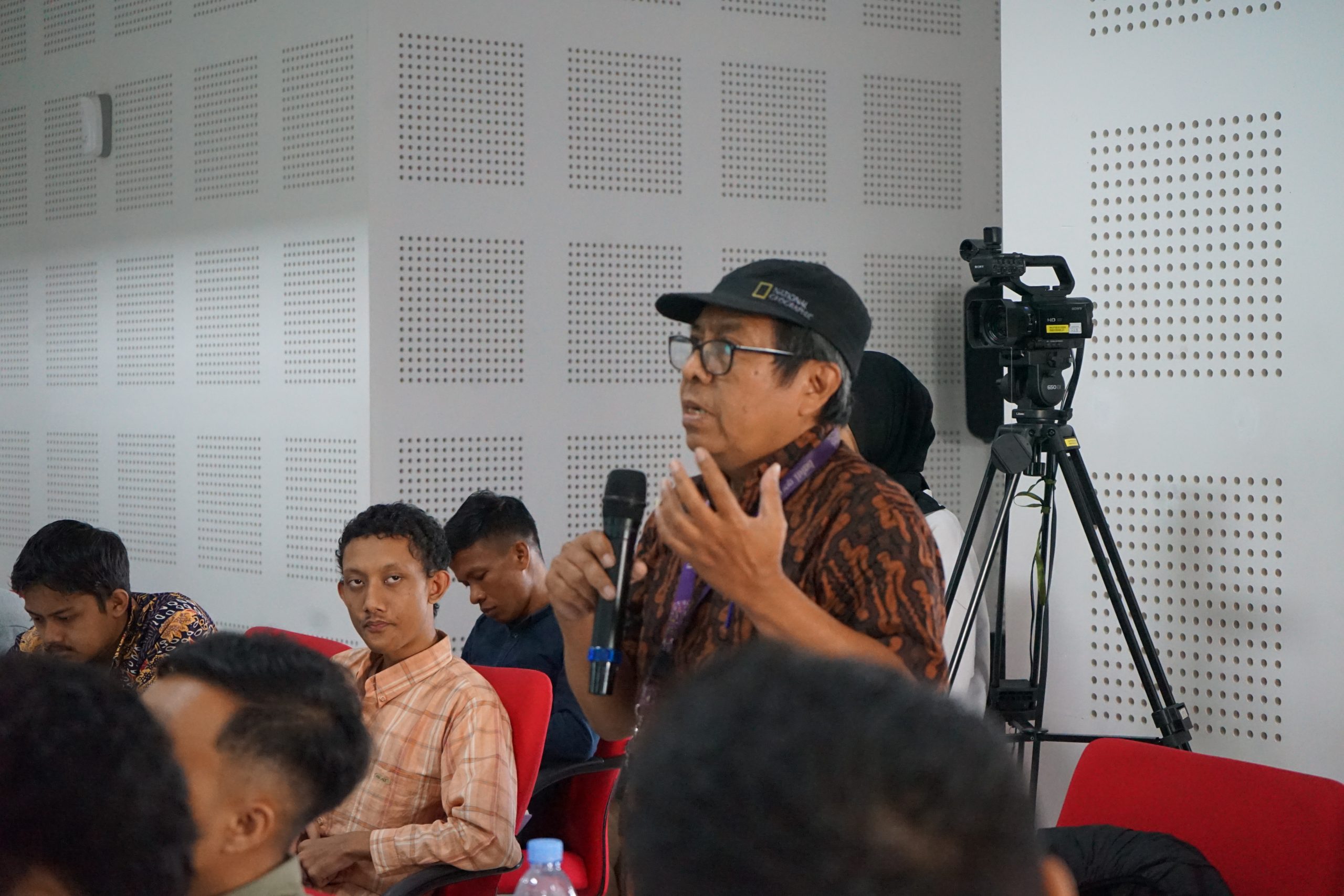Yogyakarta, October 9, 2024 – Faculty of Cultural Sciences Universitas Gadjah Mada (UGM) received a visit from SMAN 1 Cluring, Banyuwangi, and MA Binaul Ummah, Bantul, at the faculty auditorium. This activity aims to give insight to the students about the existing study programs as well as the important role of the faculty in preserving culture.
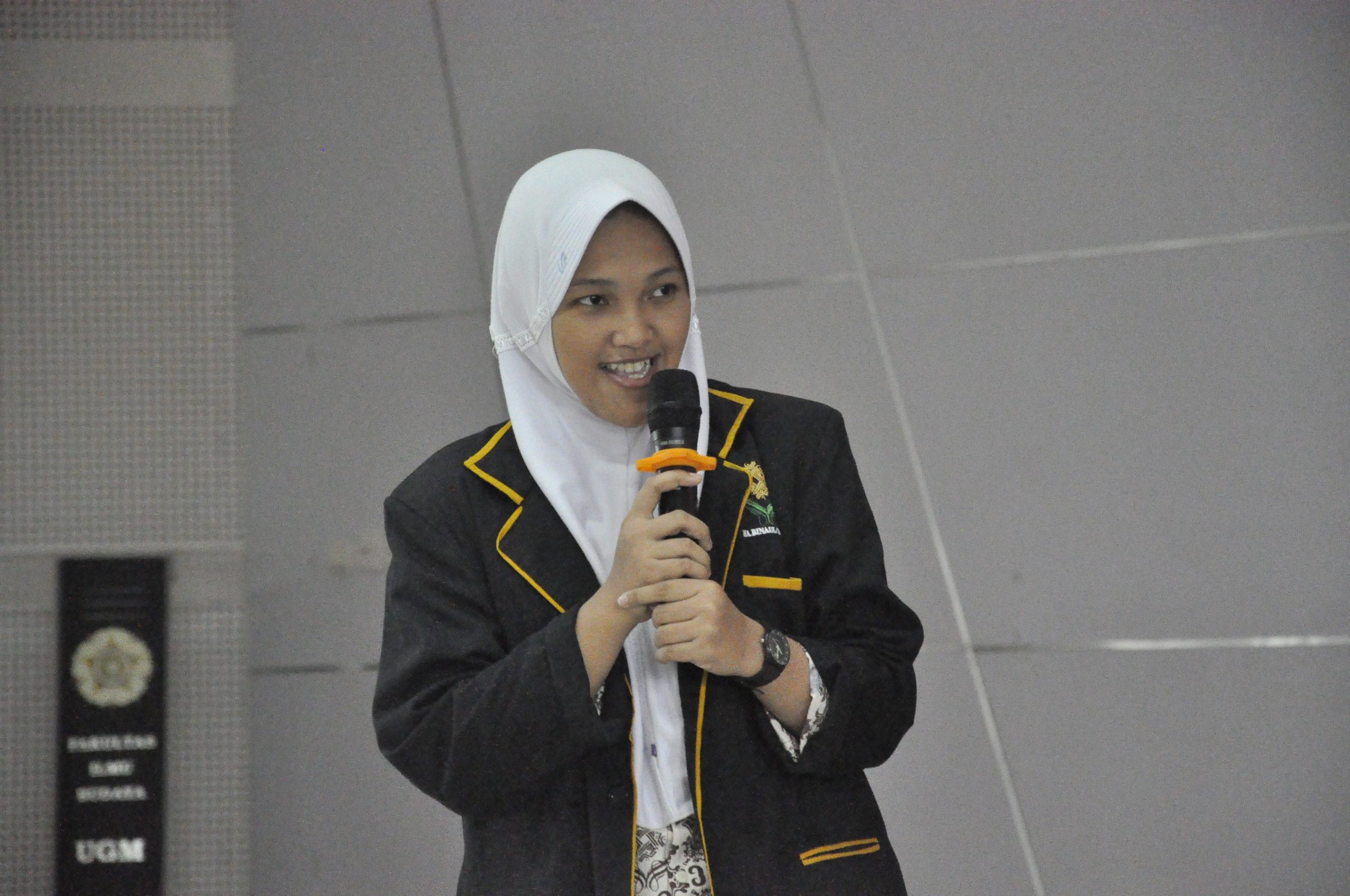
In the question and answer session, students from SMAN 1 Cluring asked questions about FIB’s contribution in preserving local culture and the challenges faced in the era of globalization. The Faculty of Cultural Sciences explained that the faculty plays an active role through research and community service, developing programs that promote local culture, although they face challenges such as the influence of foreign cultures and the lack of attention of the younger generation to cultural heritage. Students also asked about steps students can take to join the global exchange network, where it was explained that students are advised to be active in international organizations and develop foreign language skills.
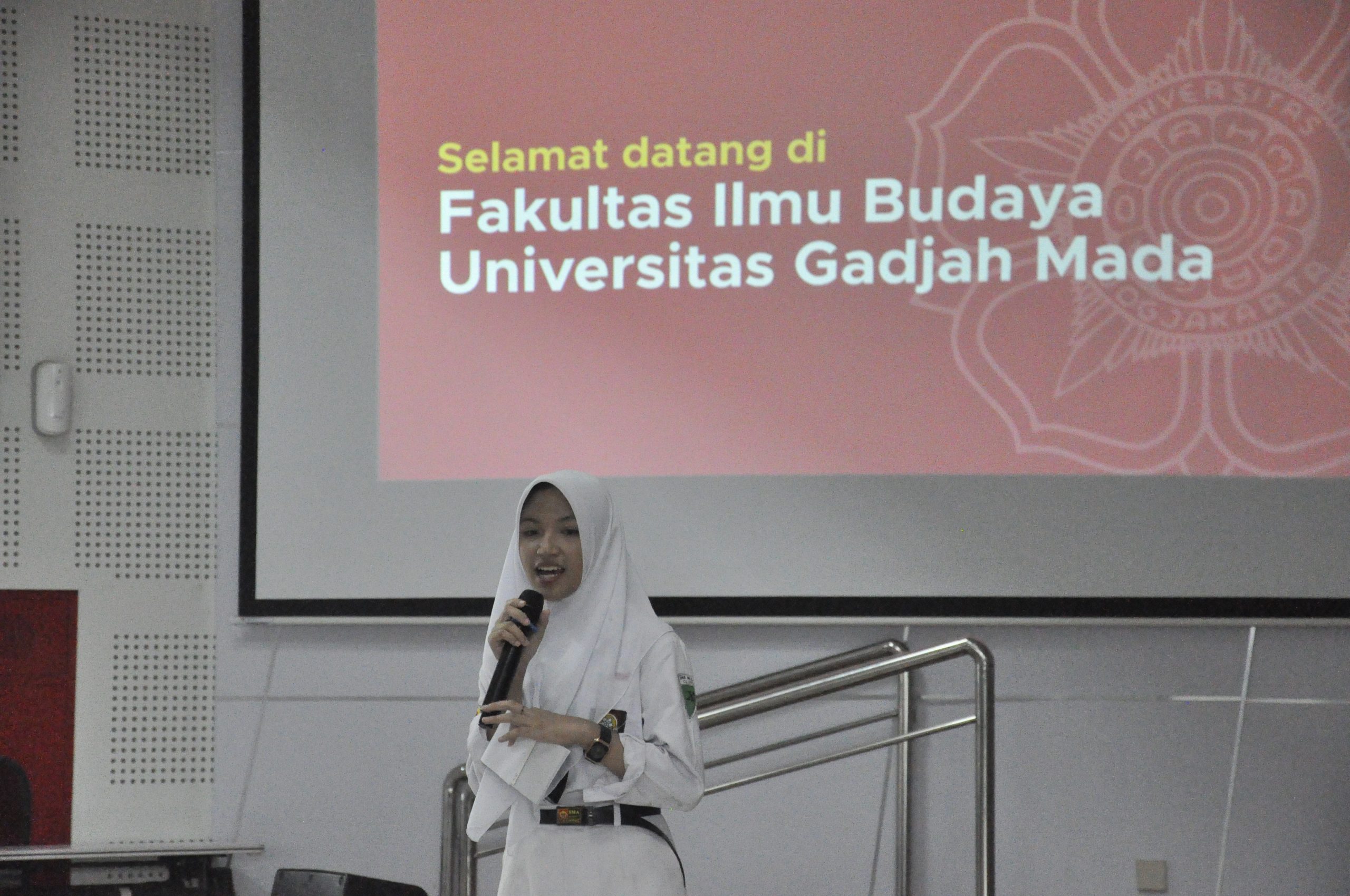
Meanwhile, from MA Binaul Ummah, students asked about the UGM entrance pathway for tahfidz. The faculty explained that UGM provides special pathways for prospective students who have achievements in the field of tahfidz, with an emphasis on the importance of following the appropriate selection. Students can apply through the achievement pathway. They also questioned the job prospects for Arabic Literature graduates. It was explained that Arabic Literature graduates have extensive career opportunities, including in education, translation, diplomacy, and the media industry. This visit is expected to give students a better understanding of the importance of education in the field of cultural sciences as well as the opportunities that exist at UGM, hopefully students will be inspired to continue their studies to a higher level and contribute to the preservation of local culture.

